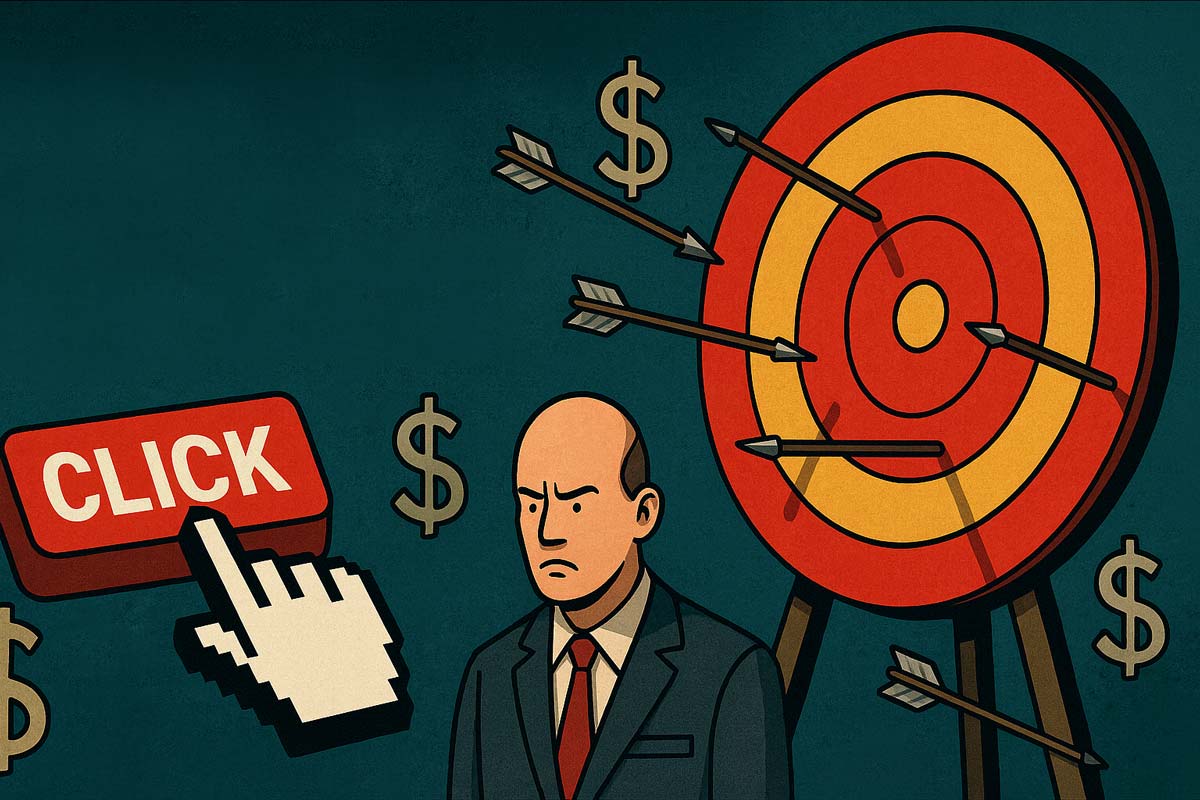Job has always been more than just a way to earn a living; it has been a cornerstone of how people see themselves in society. Today, that cornerstone feels as if it has been twisted in its foundation: millions search for a door that seems to have vanished. On the surface, the reasons appear clear – competition, technology, crises, but the real issue lies deeper. The problem is not a shortage of job postings, but the collapse of the very model of labor itself. Professions vanish faster than résumés can be updated, diplomas depreciate faster than currency in inflation, and the hard-won experience of the past decade often becomes nothing more than ballast.
The old prescriptions like “believe in yourself”, “send out more applications”, “take another course” – work about as well as aspirin for pneumonia. In this new reality, panic is the worst advisor. The real challenge today is not to “find a job” but to understand what exactly to look for, and where that path will ultimately lead.
According to the International Labour Organization, global unemployment in 2023 stood at around 5.3% – a figure that hardly sounds catastrophic. In Russia, the official rate is just 3.2%; in Kazakhstan, 4.8%; in Uzbekistan, roughly 6%. Yet everyone understands these percentages hide another reality. If things were truly that smooth, hundreds of thousands of people would not be spending months without work, and recruiting platforms would not be filling up with résumés faster than jobs appear.
The central paradox of today’s labor market is this: jobs exist, but people no longer find themselves in them. Warehouses, delivery services, low-wage service positions – all of these are available. Yet few university graduates or former top managers are eager to take them. The banker or telecom executive who spent twenty years building a career struggles to accept a call-center job. His diploma, his experience, his proud “I am a professional” all collide with a reality in which half of his skills are suddenly obsolete.
There is another side to the coin: companies are increasingly reluctant to hire people “for the long haul.” It is far simpler to buy time and skills on outsourcing platforms or freelance exchanges. The worker becomes not a part of the team but a budget line item – hired “per task” and released once the task is done. Rational for business, perhaps, but for the individual it means living in permanent audition mode, forced to prove every week that they deserve the next project.
Add to this the chasm between education and reality. A 2022 World Bank study showed that over 50% of students in developing countries graduate with knowledge that is outdated before they even leave university. Schools churn out economists, lawyers, and “managers,” while the market demands AI specialists, logisticians, data scientists, and sustainability experts. The result: employers complain of “talent shortages,” while graduates lament the lack of jobs. Both are right.
And then there is the psychological dimension. The modern labor market demands flexibility – the very quality most people lack. Many resist working where work is available. Not because they are lazy, but because their expectations are broken. Picture an engineer who spent fifteen years climbing the ladder in a large corporation, now driving for Uber to make ends meet. Formally, it’s still a job. But to him, it is a personal defeat. This is where human dignity enters the equation.
So what can one do to stay afloat? Here begins the most interesting part: monetizing one’s own experience and skills. Those who succeed today are those who can translate past expertise into new formats. A schoolteacher can become a soft-skills coach or launch an educational blog. A lawyer displaced by artificial intelligence can reinvent themselves as a risk consultant for small businesses. Even a taxi driver can turn knowledge of the city into a logistics course and earn more than many influencers.
It sounds like a joke, but the labor market has indeed become a giant stage where everyone must look for new roles. The problem is that most people are still waiting for auditions for the old movie – one that will never be filmed again.
It is time to look tomorrow squarely in the face. And there is nothing comforting there: the future of work resembles a surgeon’s knife more than a gentle evolution. McKinsey estimates that by 2030, automation and AI will replace up to 800 million jobs worldwide. The World Economic Forum projects that by 2027, 83 million jobs will vanish while only 69 million new ones will emerge. The arithmetic is simple – a net loss of 14 million. But behind every percentage point lies a human being forced to abandon a familiar path and search for a new one.
Artificial intelligence is no longer a novelty toy. It codes faster than programmers, creates illustrations in seconds, and provides client consultations good enough that a human lawyer or doctor is no longer always needed. Professions once considered elite are beginning to lose their weight. A junior lawyer? Already replaced by an algorithm. A financial analyst crunching basic numbers? Also an algorithm. Even journalists now feel the cold breath of machines, as software churns out news articles in real time. The irony is sharp: yesterday people joked that “robots will take janitors’ jobs.” Today, the janitor is still sweeping the street, but the graduate of a prestigious university is unemployed.
Automation of physical processes is accelerating as well. Robots in China and South Korea assemble cars without human hands. Amazon warehouses run with minimal staff. Restaurants in Japan and the U.S. are testing fully automated kitchens. According to Boston Consulting Group, by 2035, 25% of all manufacturing jobs will be fully automated. This is not futurism but fact: five workers replaced by one operator watching over machines.
Geopolitics and global turbulence make the labor market even more fragile. Sanctions, trade wars, local conflicts – all push companies to reduce risk, which often means reducing headcount. Why keep an office in a country where tomorrow may bring new restrictions? It is easier to shut down and hire a remote team elsewhere.
Social systems are already breaking down. By 2050, Japan will have nearly one retiree per working-age citizen. In Europe, protests against raising the retirement age are becoming routine: France burns, Germany grinds to a halt under union strikes. In the post-Soviet space, things are harsher still: pensioners survive on $200–300 a month, forced to choose between food and medicine, after decades of mandatory contributions to funds that promised a “dignified old age.”
Education, too, has finally lost touch with reality. A student enrolls in economics, and five years later emerges into a world where algorithms handle calculations faster and cheaper. Universities prepare young people for a life that no longer exists. That is perhaps the greatest crisis: the system produces people for the past, not for the future.
The scariest part is that work is no longer a guarantee of identity. For centuries, labor defined the “I”: I am a doctor, I am an engineer, I am a lawyer. Now this “I” has become a timestamp. Today you are a lawyer, tomorrow a courier, the day after a digital marketer. Careers are no longer built vertically but snake horizontally with constant turns.
Yesterday we laughed at our parents’ mantra: “Study hard, and you’ll have a good job for life.” Today it sounds like a bad joke told in a cheap bar. A good job for life? Only if you’re a robot.
So the natural question is simple: what is the ordinary person supposed to do now? The answer is clear: stop waiting for miracles. Start treating yourself as a project. Yes, a project with analysis, strategy, KPIs, and a development plan.
Step one: inventory your skills. Write down what you can actually do. Not job titles, not grand labels, but concrete actions. “I can manage people” is fluff. “I built a team of five and brought a project to profitability in three months” – that’s marketable. According to LinkedIn, employers increasingly search for competencies, not positions. Forget “I was a manager.” Say: “I can turn chaos into results.”
Step two: monetize your experience. Today, nearly everything is sellable: Excel skills, accounting, negotiation, even unusual hobbies. A former engineer in Novosibirsk now runs online courses in 3D modeling and earns more than at the institute. A literature teacher in Kyiv became a corporate culture consultant. A taxi driver in Almaty launched a YouTube channel about city routes and monetized it faster than many influencers. These are not fairy tales; this is reality. The market no longer divides skills into “important” and “unimportant.” If a hundred people need what you know, you can earn from it.
Step three: diversify income. Living on a single salary today is like building a house on one pillar. The World Bank reports that more than 40% of people who lost their main job had no alternative income streams. Freelance, side gigs, investments, online services – each is insurance. Even small amounts create psychological freedom: if one source collapses, you are not left empty-handed.
Step four: financial discipline. Debt is a noose that tightens faster than you expect. OECD studies show that 57% of households in the post-Soviet world lack even one month’s emergency savings. That is catastrophic. A financial safety cushion is no longer a luxury but a duty. It gives you the power to refuse a toxic employer and wait for a better option.
Step five: face the market honestly. No three-month “become a programmer” course will turn you into a Google engineer. But it can give you a foothold in a new field. Do not delude yourself: if you spent twenty years in accounting, you will not become an AI developer overnight. But you might become a financial consultant for tech companies – a bridge between your old and new worlds.
Step six: networks. According to Harvard Business Review, up to 70% of jobs never make it to job boards; they are filled through word of mouth. So if you sit at home waiting for résumés to be answered, know that half the market is passing you by. Maintaining connections, keeping ties alive, and sharing value are currencies of the 21st century.
And finally – learn to laugh at yourself and at the system. Because otherwise you will go insane. Yes, the job market is chaos. Yes, you can lose your position not because you failed, but because AI does it cheaper. But if you face it with sobriety and humor, you arm yourself with the best survival tool: a cold, clear mind.
The work of the future is not a guarantee, not stability, not a title. It is a project. And projects can be built, adjusted, shut down, and restarted. If you are ready to live by that logic, no crisis can kill you.



